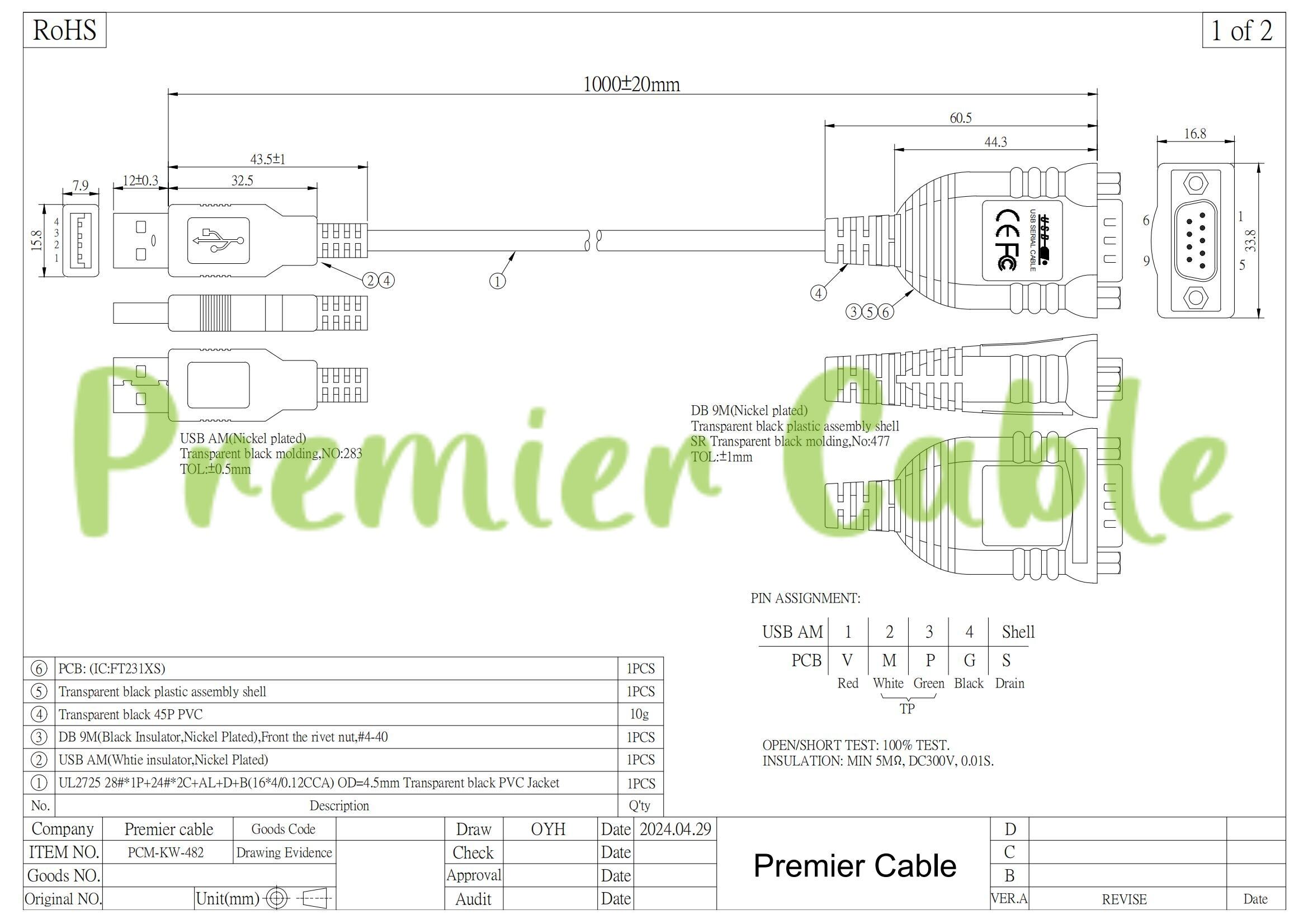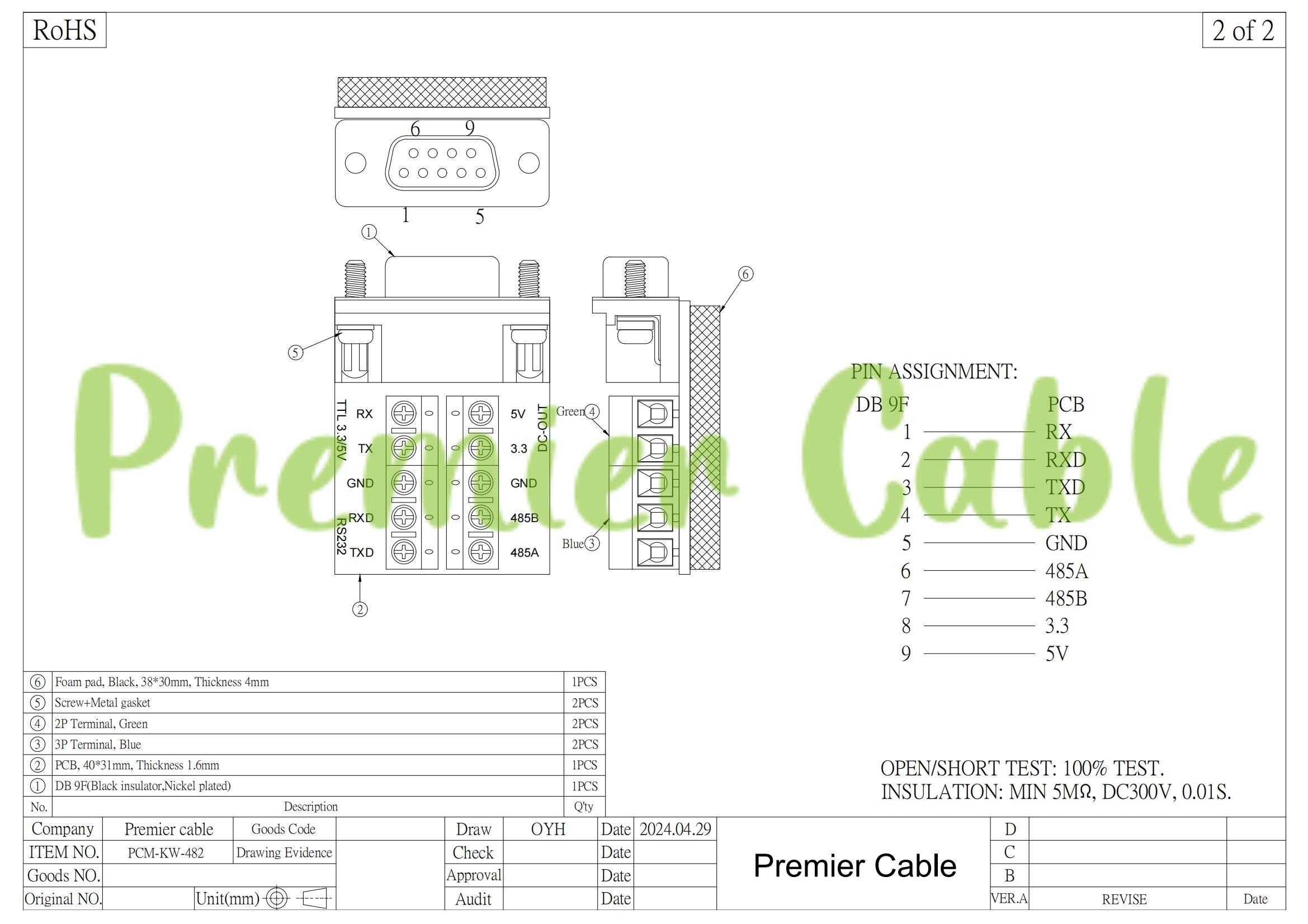Description
Introduction:
The USB-A to RS232 485 TTL 3-In-1 Converter Cable is designed to convert USB digital signals into three different types of serial communication signals: RS232, RS485, and TTL. It facilitates easy connection and seamless communication between computers and a variety of serial equipment, widely used in industrial equipment, legacy systems, embedded devices, data acquisition systems, etc. Premier Cable P/N: PCM-KW-482
Specification:
| Type |
USB to RS232 485 422 Converter |
| Product Name |
USB-A to RS232 485 TTL 3-In-1 Converter Cable |
| Drawing No. |
PCM-KW-482 |
| Connector 1 |
USB Type A Male |
| Connector 2 |
D-Sub 9 Pin Male |
| IC |
FT231XS |
| Output Signal |
RS232 (TXD, RXD), RS485 (485A, 485B), TTL (TX, RX, 3.3/5V), GND |
| Cable Diameter & Length |
4.5mm; 1m, Or OEM |
| Jacket Material |
PVC |
| Certificate |
RoHS |
Features:
- USB-A Interface: Connect the computers, laptops, and other devices with standard USB Type-A ports, ensuring compatibility with various modern electronic devices.
- 3-In-1 Design: The USB-A to RS232 485 TTL Converter Cable combines three functions of RS232, RS485, and TTL, reducing the need for multiple cables or adapters and streamlining device integration.
- FT231XS Chip: It is equipped with the versatile FT231XS USB-to-UART interface chip on the DB9 male connector, facilitating reliable and efficient USB-to-serial communication.
- Easy to Use: The USB-A to RS232 485 TTL Serial Converter Cable includes built-in drivers for ease of use with various operating systems.
How to Choose the Right Converter Cable?
When choosing the right converter cable, pls consider several factors based on your specific needs. The following is a guide to help you make an informed decision:
1. Determine the Communication Protocols:
- RS232: Suitable for older RS232 serial devices and simpler point-to-point communication, and the maximum data transmission distance is usually about 15m (50 feet).
- RS485/422: Allow multiple devices to communicate on the same bus, used for networked serial communication over longer distances (commonly up to 1200m) and in noisy environments.
- TTL: Used for direct communication with microcontrollers and other low-level digital systems, operating with standard logic levels (typically 0-5V or 0-3.3V).
2. Check Compatibility:
- Pls ensure the converter cable is compatible with your devices and operating systems. For instance, verify driver availability for Windows, macOS, or Linux.
3. Evaluate Cable Length and Quality:
- Pls choose an appropriate cable length by considering the physical distance between devices.
- Pls select high-quality cables with proper shielding to reduce signal interference and ensure reliable data transfer.
4. Consider Data Transfer Speed:
- Pls select a converter cable that supports the required data transfer rate (baud rate) for your application.
5. Assess Power Requirements:
- Pls ensure the cable can provide adequate power for the connected devices, or check if it requires an external power source.
By considering the above factors, you can select the right converter cable that meets the specific requirements and ensures seamless communication between your devices.
Drawing:



